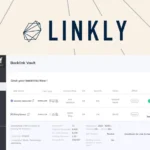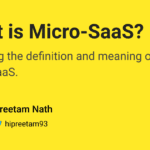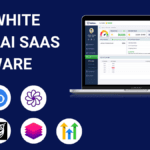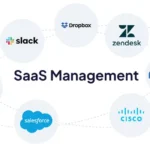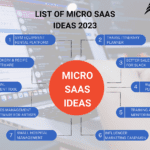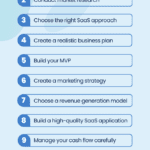White Label SaaS is software created by one company and rebranded by another to appear as their own. It allows businesses to offer software solutions without developing them from scratch.
White Label SaaS offers a flexible and cost-effective way for companies to expand their product offerings. Businesses can quickly enter new markets without significant investment in development. This model helps companies focus on their core competencies while still providing advanced software solutions to their customers.
White labeling also improves brand loyalty by delivering consistent and personalized experiences. Startups and established firms alike benefit from the scalability and innovation White Label SaaS provides. It’s a strategic choice for businesses aiming to grow and adapt in a competitive landscape.
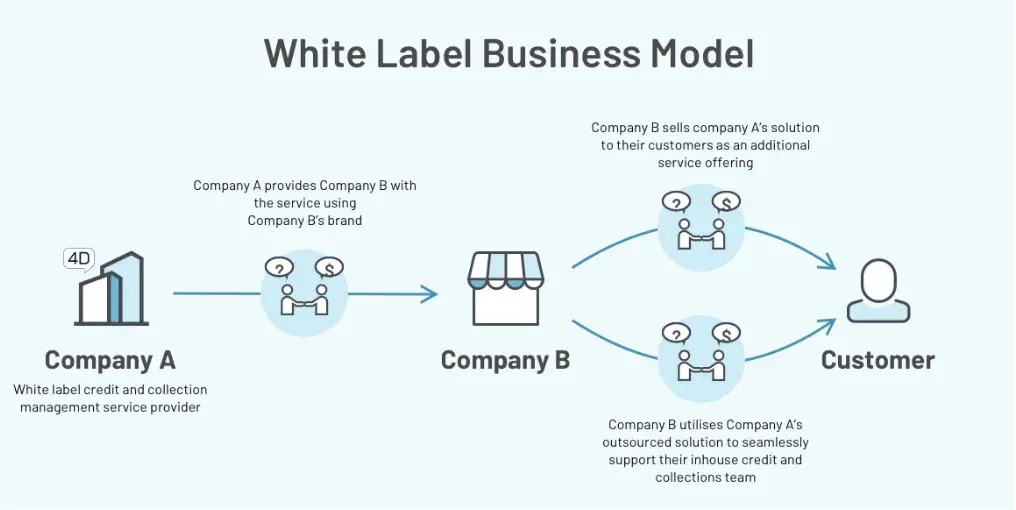
Credit: www.linkedin.com
Introduction To White Label Saas
White Label SaaS is a unique business model. Companies can rebrand software solutions as their own. This offers flexibility and efficiency. Businesses use these ready-made solutions without heavy investment in development.
Defining The Term
White Label SaaS stands for Software as a Service. Here, third-party companies provide software. Another company then rebrands it as their own. This saves time and money for the latter. They avoid building software from scratch.
This rebranding helps businesses. They can focus on their strengths. They don't need to worry about software development. They get a ready-to-use product. Their customers see it as their own creation.
Brief History
The concept of White Labeling isn't new. It started in the retail sector. Companies sold products made by others under their own brand. The software industry adopted this idea later.
White Label SaaS emerged with the rise of cloud computing. Businesses needed quick software solutions. Building software in-house was slow and costly. White Label SaaS provided a quicker alternative.
Early 2000s saw the growth of this model. Cloud services became popular. Many companies began offering White Label SaaS solutions. Today, it's a widely accepted business model.
| Aspect | Description |
|---|---|
| Origin | Retail Sector |
| Adoption in Software | Early 2000s |
| Key Benefit | Quick deployment |
- White Label SaaS saves time and money.
- Businesses can focus on their core activities.
- It provides a ready-to-use solution.
Key Features Of White Label Saas
White Label SaaS solutions offer numerous features that make them attractive. Here, we will explore the key features of White Label SaaS that set them apart.
Custom Branding Opportunities
White Label SaaS allows businesses to customize branding as per their needs. This means companies can add their own logos, color schemes, and brand names. It helps maintain a consistent brand identity across all platforms.
With custom branding, clients feel they are using a product created by your company. This enhances trust and loyalty.
Built-in Scalability
One of the standout features is built-in scalability. White Label SaaS can grow with your business. You can start small and expand as needed. This makes it easier to handle increased demand without major changes.
Scalability ensures that the software can adapt to your business needs. It saves time and resources, making it a cost-effective solution.
Reduced Development Time
Using White Label SaaS significantly reduces development time. There’s no need to build software from scratch. This means you can launch your branded solution quickly.
Quicker deployment allows you to stay ahead of competitors. It also means lower costs and faster returns on investment. This makes it a smart choice for businesses looking for rapid growth.
Advantages Of Adopting White Label Solutions
White Label SaaS offers numerous benefits for businesses. These solutions allow companies to rebrand and resell software as their own. Here are some key advantages of adopting White Label Solutions.
Cost Efficiency
White Label SaaS eliminates the need for in-house software development. This significantly reduces costs for businesses. Companies save on development, maintenance, and support expenses. They also avoid the need for a large technical team. This makes it an affordable option for small and medium-sized enterprises.
| Cost Area | In-House Development | White Label SaaS |
|---|---|---|
| Development | High | Low |
| Maintenance | High | Low |
| Support | High | Low |
Focus On Core Business
Adopting White Label SaaS allows companies to focus on their core business. They can invest time and resources in their primary activities. This increases efficiency and productivity. Businesses can concentrate on marketing, sales, and customer service. White Label Solutions handle the technical aspects, freeing up valuable time.
Speed To Market
White Label SaaS enables rapid deployment of new solutions. Companies can launch products faster than developing from scratch. This is crucial in a competitive market. Early entry can secure a larger market share. Businesses can quickly adapt to market changes and customer needs.
- Quick deployment of new solutions
- Faster product launches
- Adapt to market changes rapidly

Credit: m.youtube.com
How White Label Saas Empowers Businesses
White Label SaaS (Software as a Service) offers businesses a unique edge. It allows companies to rebrand and resell software under their own name. This model empowers businesses in several ways. Let's explore how White Label SaaS can enhance your business operations.
Flexibility In Product Offerings
White Label SaaS provides flexibility in product offerings. Businesses can choose software that fits their needs. They can easily modify the software to match their brand.
This flexibility helps businesses to stay competitive. It allows them to offer a variety of solutions to their clients. They can also quickly adapt to market changes.
Enhanced Customer Relationships
Using White Label SaaS enhances customer relationships. Businesses can offer personalized services. This makes customers feel valued and appreciated.
Personalization helps in building strong relationships. It also encourages customer loyalty. Happy customers are more likely to return and recommend your services.
Competitive Edge
White Label SaaS gives businesses a competitive edge. They can offer unique solutions that stand out in the market. This differentiation is crucial for attracting new clients.
Businesses can also save on development costs. They don't need to create software from scratch. This allows them to invest in other growth areas.
White Label SaaS (Software as a Service) offers businesses a unique edge. It allows companies to rebrand and resell software under their own name. This model empowers businesses in several ways. Let's explore how White Label SaaS can enhance your business operations.
Flexibility In Product Offerings
White Label SaaS provides flexibility in product offerings. Businesses can choose software that fits their needs. They can easily modify the software to match their brand.
This flexibility helps businesses to stay competitive. It allows them to offer a variety of solutions to their clients. They can also quickly adapt to market changes.
Enhanced Customer Relationships
Using White Label SaaS enhances customer relationships. Businesses can offer personalized services. This makes customers feel valued and appreciated.
Personalization helps in building strong relationships. It also encourages customer loyalty. Happy customers are more likely to return and recommend your services.
Competitive Edge
White Label SaaS gives businesses a competitive edge. They can offer unique solutions that stand out in the market. This differentiation is crucial for attracting new clients.
Businesses can also save on development costs. They don't need to create software from scratch. This allows them to invest in other growth areas.
Case Studies: Successful White Label Saas Implementations
White Label SaaS allows businesses to offer software solutions under their brand. Let's explore some successful implementations across various sectors.
Tech Industry
The tech industry has embraced white label SaaS with open arms. Company X used a white label CRM solution. This allowed them to offer a branded CRM to their clients without building one from scratch.
- Enhanced customer satisfaction
- Reduced development costs
- Faster time-to-market
Another tech giant, Company Y, integrated a white label project management tool. This tool became a part of their service suite, increasing their product offerings.
| Company | Solution | Outcome |
|---|---|---|
| Company X | White Label CRM | Enhanced customer satisfaction |
| Company Y | Project Management Tool | Increased product offerings |
Retail Sector
The retail sector also benefits from white label SaaS. Retailer A adopted a white label e-commerce platform. This helped them launch their online store quickly.
- Reduced time to market
- Lower initial investment
- Scalable solutions
Retailer B used a white label loyalty program. This increased customer retention and satisfaction.
| Retailer | Solution | Outcome |
|---|---|---|
| Retailer A | E-commerce Platform | Quick online store launch |
| Retailer B | Loyalty Program | Increased customer retention |
Service Providers
Service providers find white label SaaS solutions beneficial too. Service Provider Z implemented a white label invoicing system. This streamlined their billing process and improved efficiency.
- Streamlined billing process
- Improved efficiency
- Reduced administrative tasks
Another example is Service Provider W, who used a white label helpdesk software. This improved their customer support services significantly.
| Service Provider | Solution | Outcome |
|---|---|---|
| Service Provider Z | Invoicing System | Streamlined billing process |
| Service Provider W | Helpdesk Software | Improved customer support |
Potential Pitfalls And How To Avoid Them
White Label SaaS offers a unique opportunity for businesses. But it also comes with its set of challenges. Understanding these potential pitfalls can help you navigate them effectively. Below, we explore some common issues and how to avoid them.
Quality Control Issues
Maintaining consistent quality control can be challenging. You rely on another company's product. The original developer may not meet your standards. This can lead to dissatisfied customers.
Solution:
- Conduct regular audits of the software.
- Provide clear guidelines to the developer.
- Test the product extensively before releasing it.
Brand Dilution Risks
Brand dilution occurs when your brand loses its unique identity. This can happen if the white label product is too generic. Customers may not distinguish your brand from others.
Solution:
- Customize the software to reflect your brand.
- Use unique branding elements like logos and colors.
- Ensure the product offers something exclusive.
Dependency On Service Providers
Relying heavily on a service provider can be risky. If they fail, your business suffers. You may face service interruptions or support issues.
Solution:
- Choose a reliable service provider with a good track record.
- Have a backup plan in case of provider failure.
- Regularly review the provider's performance.
Choosing The Right White Label Saas Partner
Choosing the right White Label SaaS partner is crucial for business success. The right partner can drive growth and ensure seamless operations. Here’s how to make the best choice.
Criteria For Selection
Start by defining your business needs clearly. Look for partners with a solid track record. Evaluate the following criteria:
- Experience: Years in the industry and successful projects.
- Customization: Ability to tailor the solution to your needs.
- Support: Availability of 24/7 customer service.
- Scalability: Capability to grow with your business.
Vetting Process
Vetting potential partners is a critical step. Follow this process:
- Research: Check reviews and testimonials.
- Request Demos: See the software in action.
- Ask Questions: Clarify doubts and ask for case studies.
- Trial Period: Opt for a trial to test compatibility.
Long-term Collaboration
Building a long-term relationship is essential. Consider these factors:
- Communication: Ensure clear and frequent communication.
- Trust: Build a foundation of mutual trust and respect.
- Feedback: Provide and receive constructive feedback regularly.
- Innovation: Partner should stay updated with latest trends.
Future Of White Label Saas
The future of White Label SaaS promises exciting developments. Businesses are adopting white label solutions at a rapid pace. This adoption opens up new avenues for innovation and growth. Let's explore what lies ahead for White Label SaaS.
Innovative Trends
White Label SaaS is evolving with new trends. One key trend is AI integration. AI helps in automating tasks and improving user experience. Another trend is customization. Businesses want tailored solutions that fit their unique needs.
Here's a quick look at some innovative trends:
- AI and machine learning
- Advanced analytics
- Customization and personalization
- Enhanced security features
Market Predictions
The White Label SaaS market is set to grow exponentially. Analysts predict a significant increase in demand. Small and medium businesses are driving this growth.
According to recent studies, the market size could double by 2025. Here's a projection table:
| Year | Market Size (in billion USD) |
|---|---|
| 2023 | 50 |
| 2024 | 70 |
| 2025 | 100 |
These numbers indicate a strong future for White Label SaaS.
Evolving Business Models
Business models in White Label SaaS are changing. Companies are adopting subscription-based models. This model ensures a steady revenue stream.
Another evolving model is the freemium model. It allows users to try before they buy. This approach increases user engagement and trust.
Key business models include:
- Subscription-based
- Freemium
- Pay-per-use
- Tiered pricing
These models offer flexibility and cater to various customer needs.

Credit: unlayer.com
Frequently Asked Questions
Can You Sell A White Label Saas?
Yes, you can sell white label SaaS. Customize the software with your brand and market it as your own.
What Is White Labeling In Software?
White labeling in software means rebranding and reselling another company's product as your own. It allows businesses to offer a complete solution without developing it from scratch. This approach saves time and reduces costs.
Is White Label Saas Worth It?
Yes, white label SaaS is worth it. It saves time, reduces costs, and enhances brand identity.
What Is The Definition Of A White Label?
A white label is a product or service produced by one company but rebranded by another. Businesses use it to offer new products without investing in production.
Conclusion
White Label SaaS offers businesses the flexibility to brand and resell software. It helps companies save time and resources. By leveraging White Label SaaS, businesses can focus on their core competencies. This strategy provides a competitive edge and boosts revenue.
Consider White Label SaaS to enhance your business growth and efficiency.
